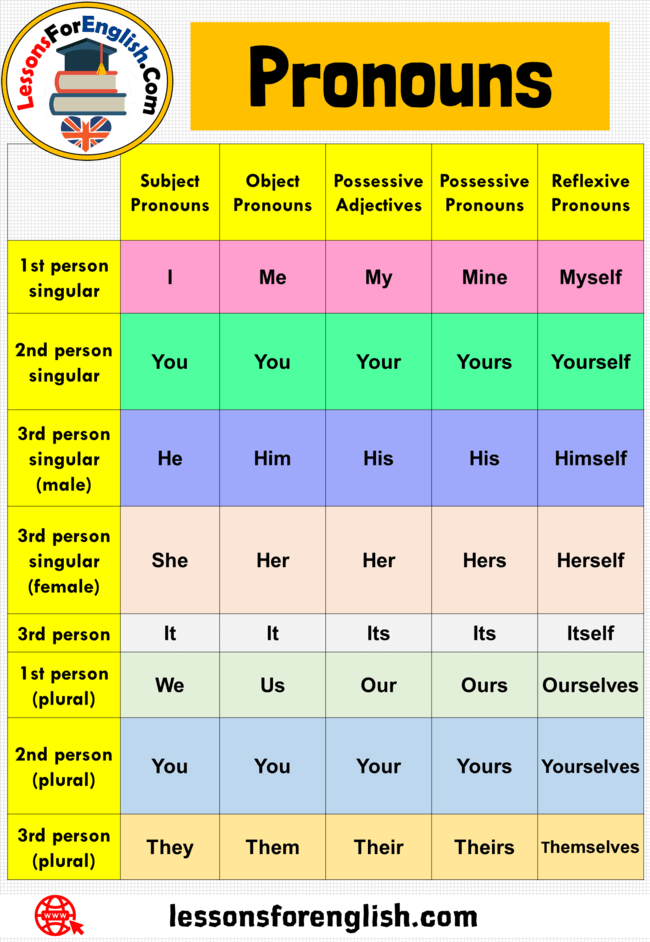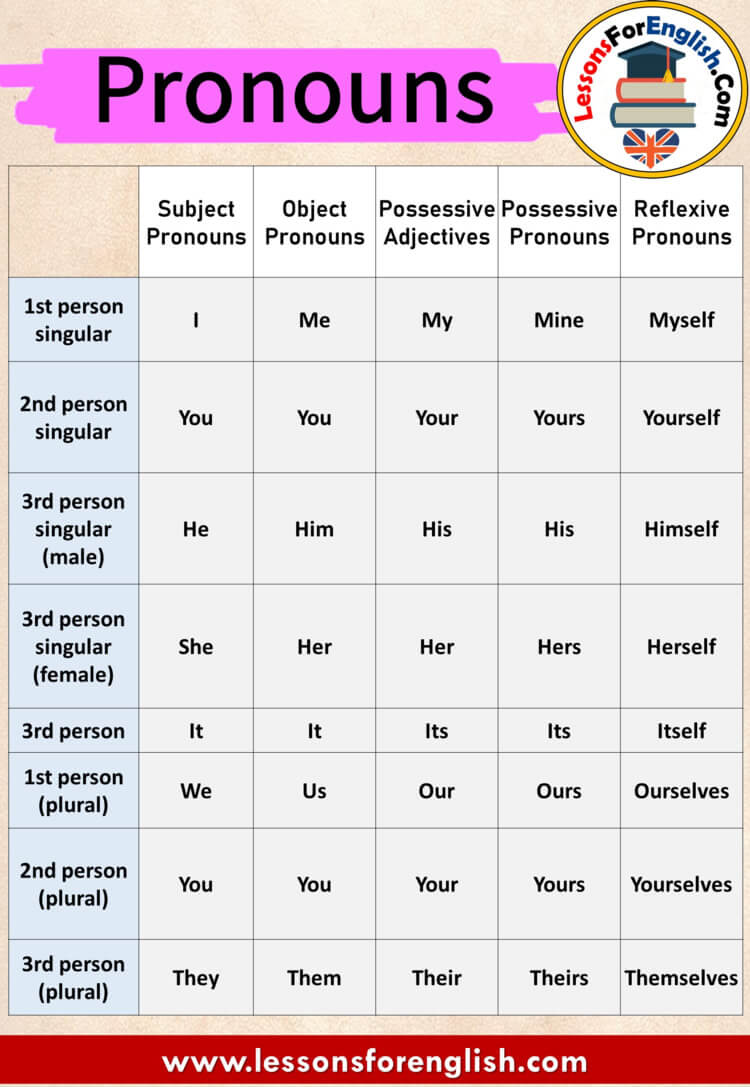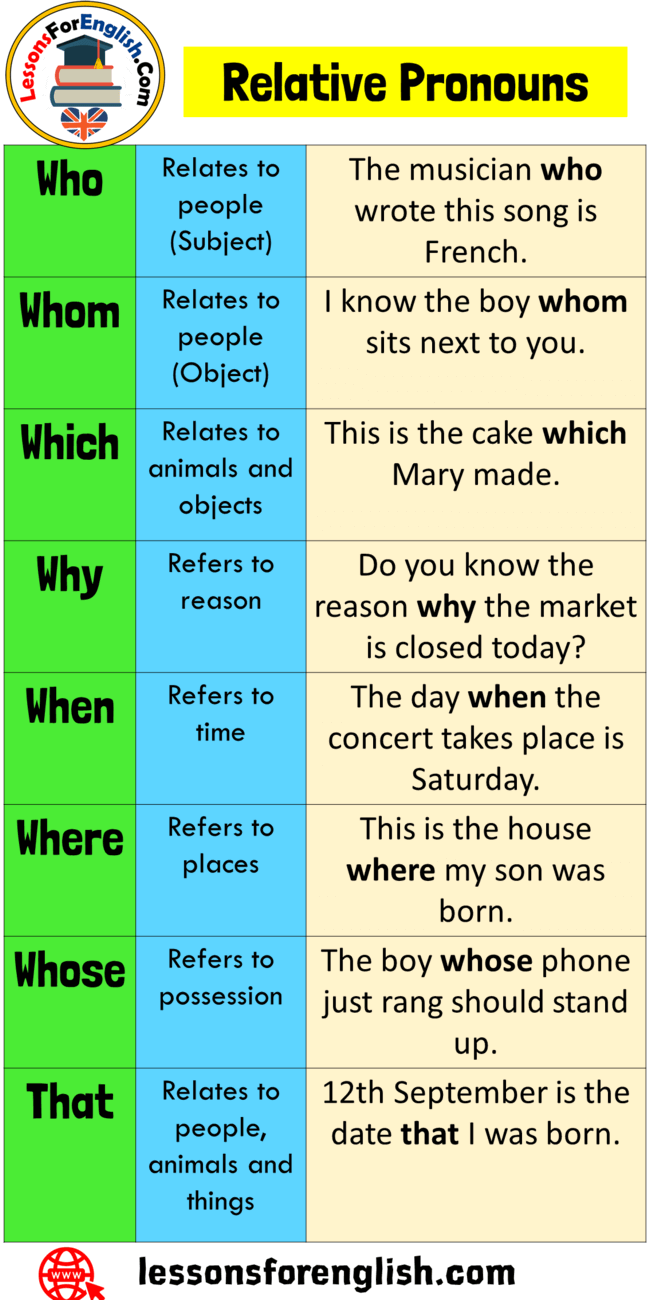Pronouns Definition and Example Sentences, Personal, Reflexive, Demonstrative, Relative

Table of Contents
Pronouns
In this course, we will examine the subject of ‘pronouns’ in English in detail. Although it may seem trivial and small detail in the first place, it is necessary to know the subject of pronouns that can change the meaning of a sentence even with a small letter. A pronoun is to say the word in question without chanting a word, but using another word to say that we are talking about that word. Before we get to the point, we want to clarify something. Do not learn the rules of English grammar by thinking about the equivalents of your own language. Yes, it is easier to learn the subjects we see in grammar lessons by overlapping them with English subjects, but it is a learning attitude that is extremely wrong. For this reason, we have also shared subject names below so that you can better understand pronouns, but this does not mean that both subjects are the same.
According to the Species And Pronouns
Personal Pronouns
Personal pronouns are the easiest and best-known type of pronoun. There is a subject in the middle, but we do not want to use the name of that subject or object, so we use another word with the same meaning. Personal Pronouns are used in two different tasks in a sentence.
These:
- Subject pronouns: I, you, he, she, it, we, you, they
- Object pronouns: Me, you, him, her, it, us, you, them
Reflexive Pronouns
This pronoun type is also used if a person or object makes the action to itself. In the sentence” Melissa washed herself”, Melissa, the subject of the action, does the action to herself and washes herself. Instead of saying” Melissa washed Melissa” this is how we change the ending. Below we have listed all reflexive pronouns.
- Myself, yourself, himself, herself, itself, ourselves, yourselves, themselves
Possessive Pronouns
Possessive pronouns are divided into two according to their use. These:
- Independent ones: Mine, yours, hers, his, its, ours, ours, yours, yours, their
- Used as a compliment: My, your, his, her, its, our, your, their
Again, these pronouns, which give information about belonging, are used as a compliment, taking an object / noun immediately behind them.
Note: If you have noticed, “his” and “its” are the same as both the pronoun of independent belonging and the one used as a compliment. We can tell which is which by looking at whether the noun comes after it.
Demonstrative Pronouns
The word” Demonstrate ” means as a sign of hands and arms, and the name of this pronoun is also an adjective form of this verb. So here we are pointing something out, showing it.
- For close objects this (singular), these (plural)
- For distant objects that(singular), those (plural)
Have a look at that! (Something strange is happening, and our friend just says “that” to draw our attention in that direction. Maybe he saw a guy flying in the air, and instead of saying Look at that guy, he said, “that.”)
Note: let’s not confuse sign pronouns with sign adjectives. No names should come after the words this, these, that and those here, or they do not become pronouns.
Indefinite Pronouns
“Definite” means who or what is drawn with a certain limit. “Indefinite”, on the other hand, adds the meaning of negativity to this word, that is, it is an unlimited person or object. In other words, with this type of pronoun, we again want to talk about people or objects that we do not want to name directly, but we also want to talk about a mass that has no end in a number. No one, everybody, nobody, everyone, somebody, someone, anyone, nothing, anybody, something, everything, none, anything, all, some and any are the most commonly used pronouns of this type.
“Nobody goes out alone anymore “(Here we talked about an unlimited number of groups of people, but we talk so generally that we can’t rank them as those people, so we used the word” nobody” and meant a lot in a few words.
)
Relative Pronouns
The word Relative sounds familiar, doesn’t it? Yeah, we know that word from the relative clause.
Below are the pronouns of this type, which are followed by a sentence that defines a person or object, i.e. “clause”:
- Who, Who, Who, What, what, that
Interrogative Pronouns
And when asking questions, we unwittingly use pronouns. For example, we don’t know a person and say, “who is he?” we’re asking, ” who is this?” we say. The word “who” here also replaces the pronoun question, because we could not say the name of the person we do not yet know, so we used the word ” who ” instead of the name. Pronouns, or rather “pronouns”, end here.
We decided to write all kinds, but” relative pronouns “and” interrogative pronouns ” are a little deep. Of course, it would be good for you to know, and so you will master the use of words when you see them in a sentence, but you don’t need to work on these last two types as long as you did before.
Especially if you learn the pronouns” personal“,” possessive ” and “reflexive” thoroughly, you can learn pronouns very well.


